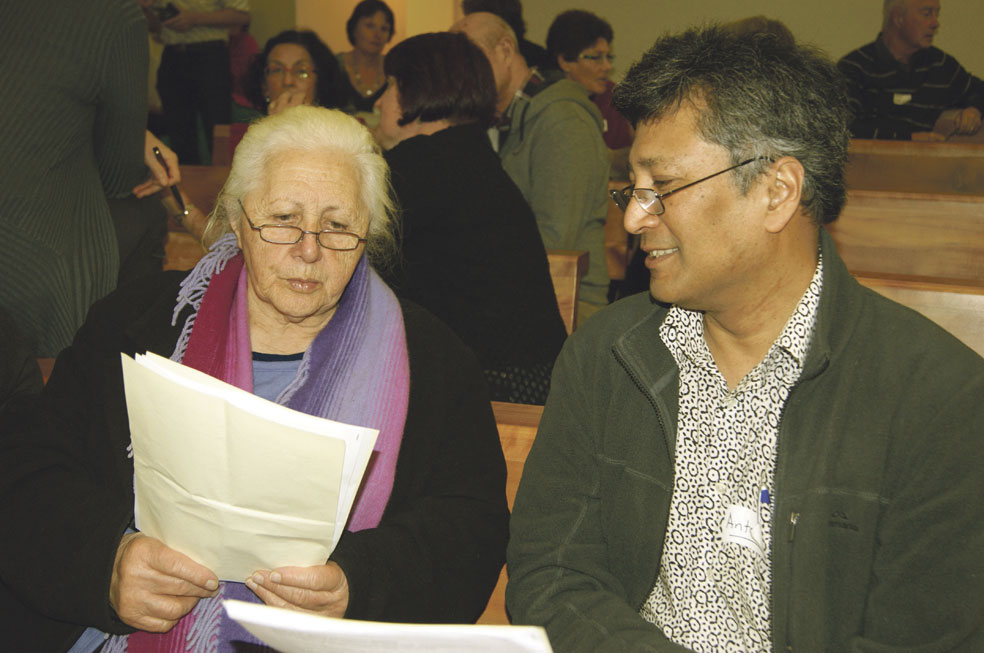 God’s greatest gift
God’s greatest gift
Reminding people of the four pillars of stewardship with which Archbishop John Dew had introduced the workshop – service, hospitality, prayer and formation – and highlighting the key stewardship elements of time, talent and treasure Sr Elizabeth Julian said the scriptures were God’s greatest gift to us.
Before Vatican II people were not encouraged to read the Bible because they might misinterpret it.
One of the two dogmatic constitutions of Vatican II was Dei Verbum in which the council fathers spelt out, after much discussion and argument, that the liturgy of the word and the liturgy of the Eucharist were of equal importance.
‘The Church has always venerated the divine Scriptures just as she venerates the body of the Lord, since, especially in the sacred liturgy, she unceasingly receives and offers to the faithful the bread of life from the table both of God’s word and of Christ’s body’ (Dei Verbum #21).
Sr Elizabeth introduced an Ignatian method of imaginative praying with scripture. Using the story of Zaccheus (Luke 19:1-10), she invited people to use their senses to imagine themselves into the scene.
‘What can I see, smell, hear, feel, taste. What kind of day is it? It could be hot and sticky. Perhaps there’s a breeze blowing. What time is it? Morning, afternoon, evening. What are the buildings like – old, new, big.
What else is part of the setting? Perhaps there’s a dog lying in the shade, children chasing a ball, some teenagers laughing together. As you look round, who else is there – perhaps someone you’re trying to avoid or someone you haven’t seen for a long time and you want to catch up. Perhaps there’s a conversation taking place nearby and you wonder if you can join in.
‘After a while you leave the group and move towards a larger crowd. What sort of mood can you sense – excitement, anticipation, fear? Suddenly that nasty little man Zacchaeus rushes past you and literally runs up the tree. Then you see Jesus stop under the tree and call out to him. Zacchaeus comes down really quickly but you lose sight of him because he’s so short. Then you can hear Zacchaeus making some very extravagant promises in a loud voice. Then Zacchaeus rushes off to start meal preparation and Jesus is left standing alone. Suddenly you find yourself right before him. He says your name. Just begin a conversation with Jesus. It may take the form of gratitude, praise, asking for something or saying sorry. Just spend some time in conversation with Jesus.’
The scriptures are behind so much art particularly the great masters of the Renaissance. The Bible informed classical music such as Handel’s The Messiah parts of which are based on Isaiah and the Book of Revelation and popular songs, Boney M’s ‘By the Rivers of Babylon’ which comes from Psalm 137.
She i
nvited people to ask themselves what steps they could take in their lives to nourish and deepen their love and understanding of scripture. She said that there are many useful websites such as one that has a dramatisation of Mark’s gospel. And there are many free biblical apps for iPads and tablets.
Finally she challenged people: ‘Get yourself with Zacchaeus at the top of that tree – look out at your new parish boundary, see who’s there. See who’s not there. Why are they not there? What are you going to do to make the new parish boundaries work?